The Technologies Learning Area at Byford Secondary College offers study in the contexts of Design (Technical Graphics), Digital Technologies, Food Specialisations, Food and Fibre, Materials Specialisations and Engineering Principles & Systems.
Our technologies department is one of the largest in the College with several purpose built classrooms and demountable classrooms. Students will learn practical applied knowledge that they can immediate integrate into their everyday lives. Skills such as sewing, and cooking are basic life skills that add to a confidence. Metal work and wood work are skills that aid the expression of creativity through functional means and provide an exploration into possible future pathways.
Technologies motivates young people and engages them in a range of learning experiences that are transferable to family and home, constructive leisure activities, community contribution and the world of work.
Society needs enterprising students who can make discerning decisions about the development and use of technologies, develop solutions to complex challenges and contribute to sustainable patterns of living. Technologies can play an important role in transforming, restoring and sustaining societies and natural, managed and constructed environments. Technologies provides students with authentic learning challenges that foster curiosity, confidence, persistence, innovation, creativity, respect and cooperation. These attributes are necessary when using and developing solutions to make sense of complex ideas and relationships in all areas of learning.
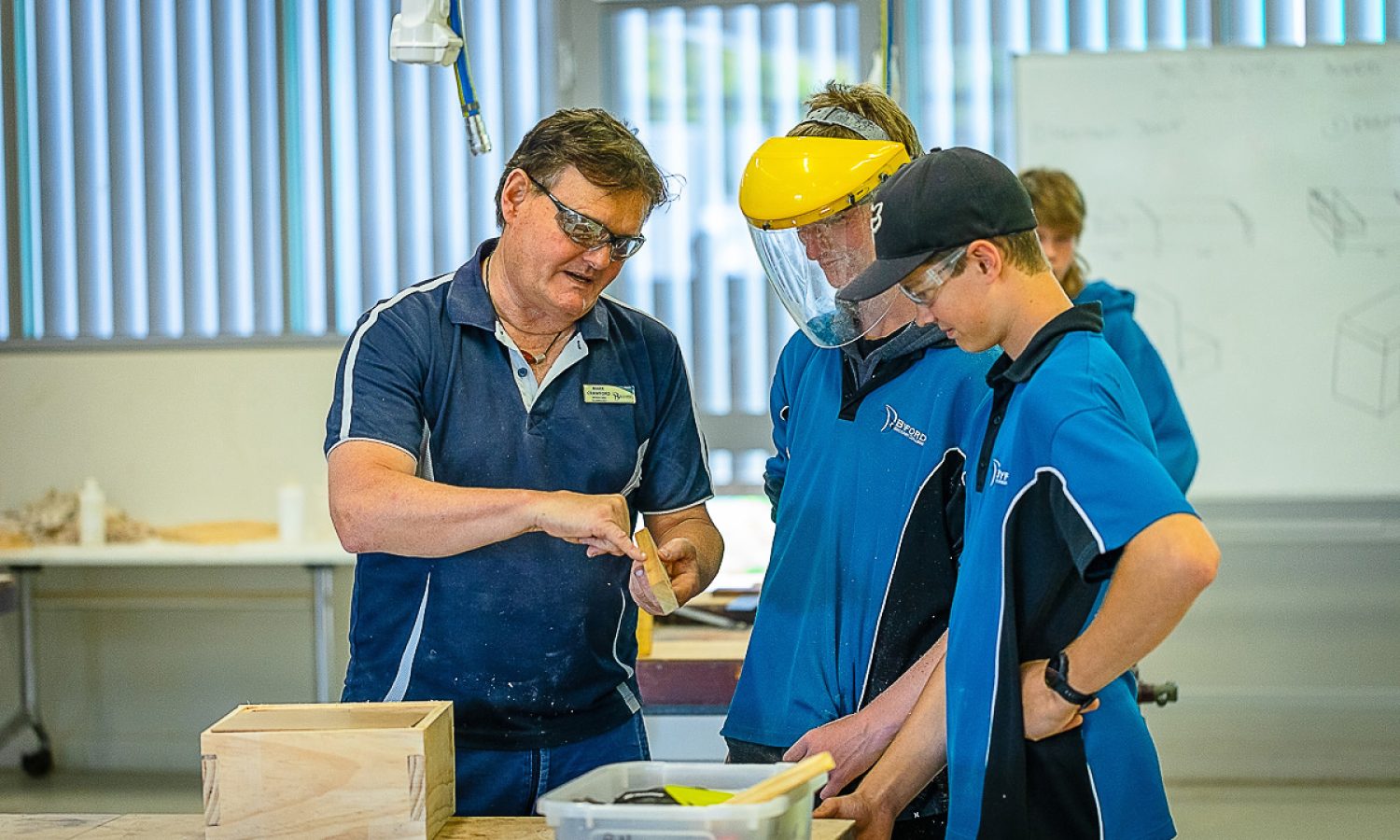
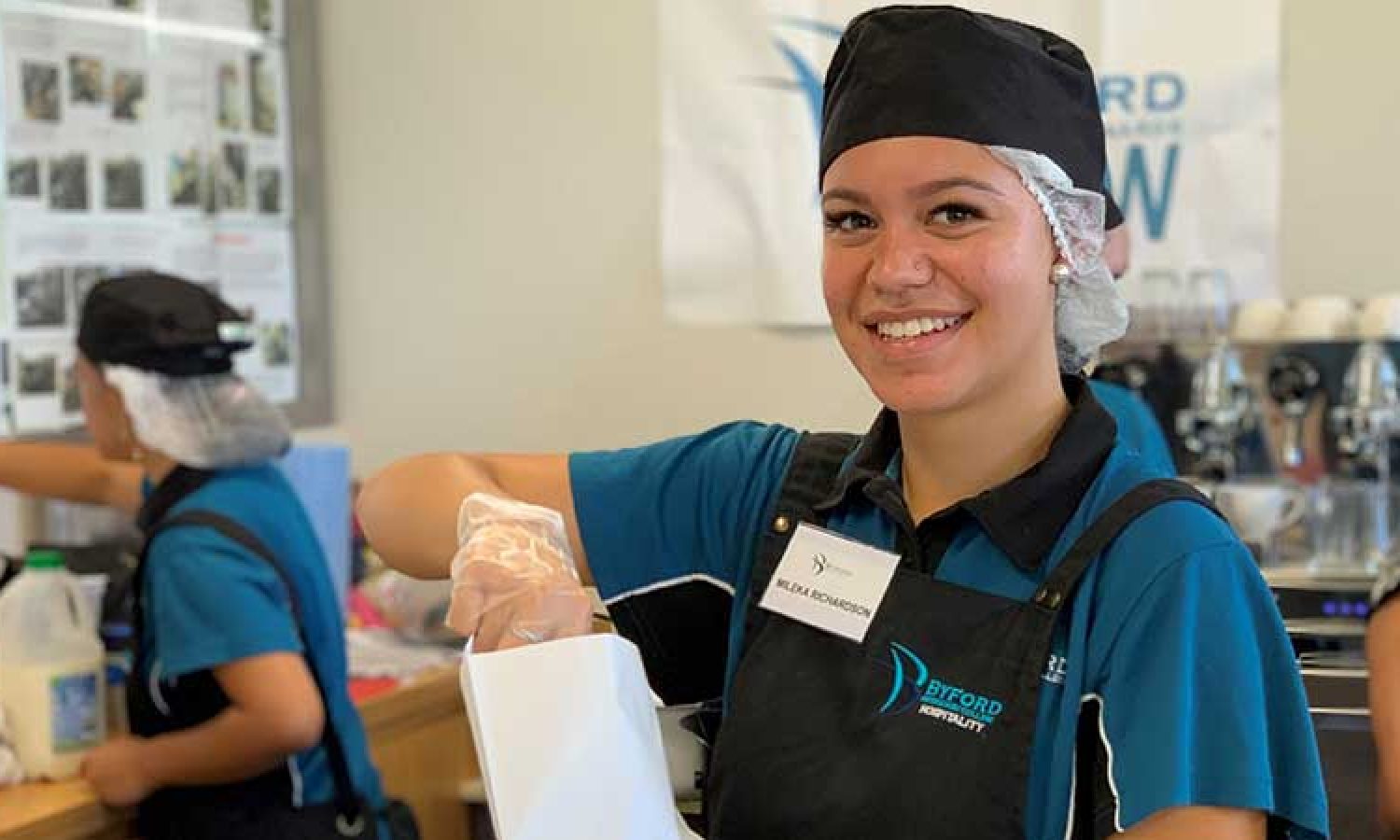
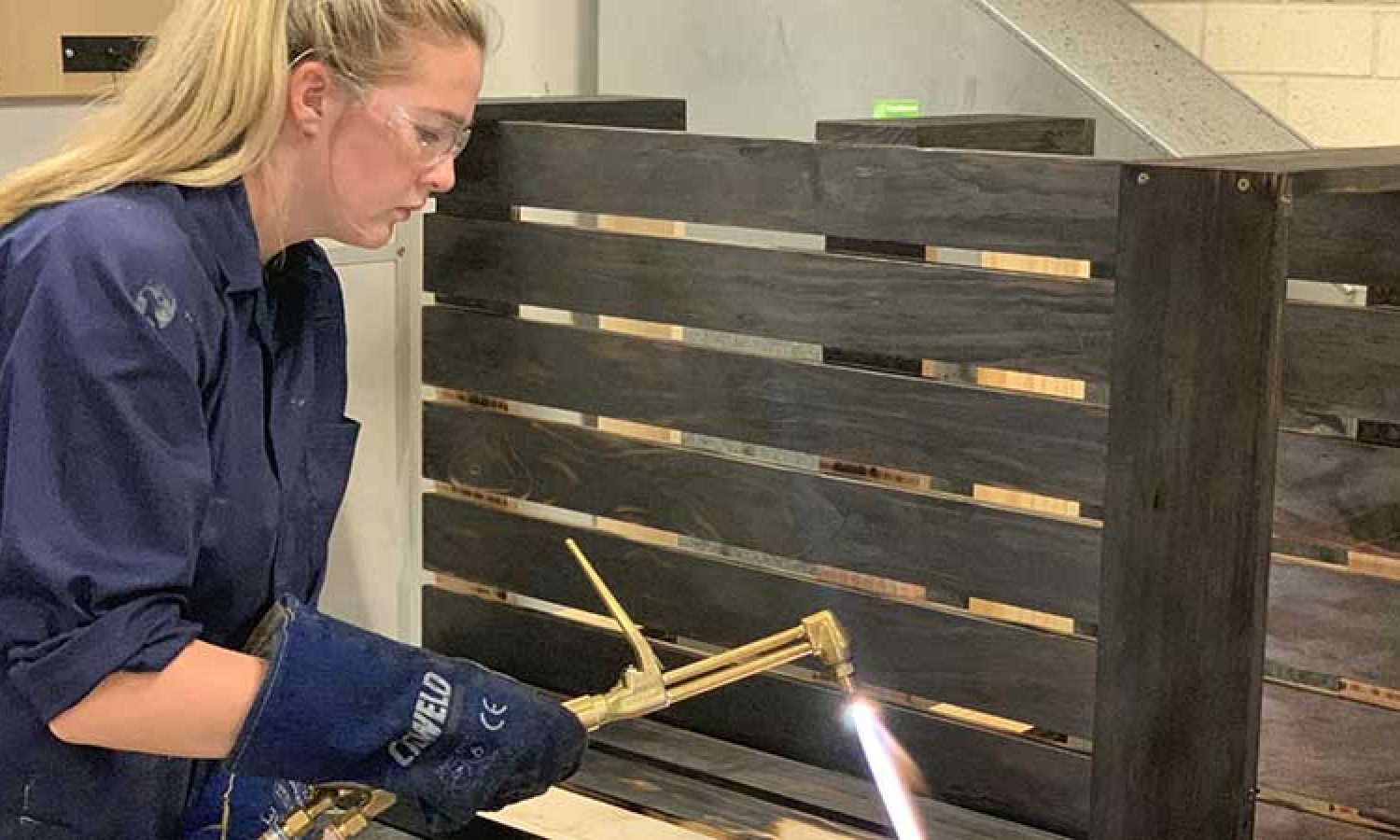
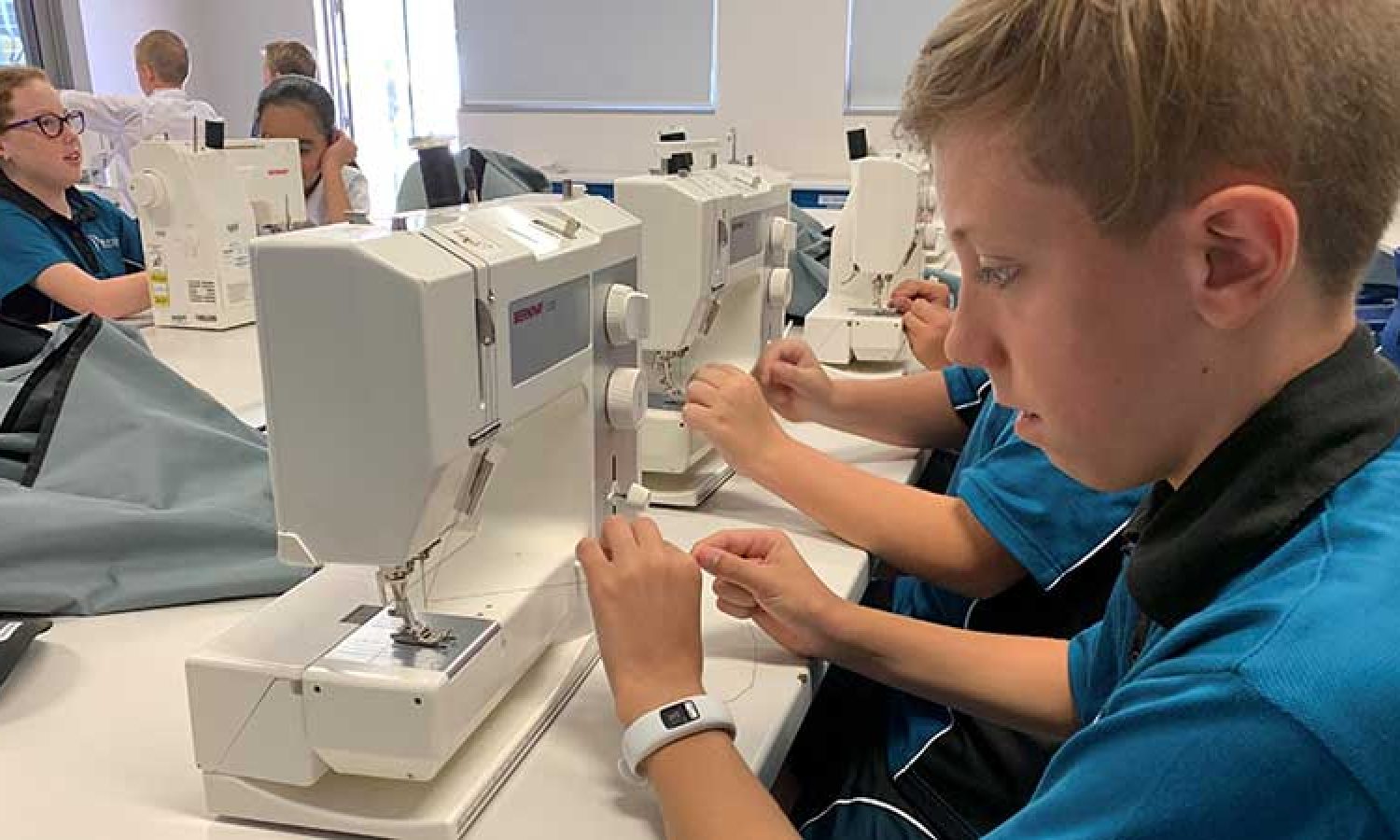
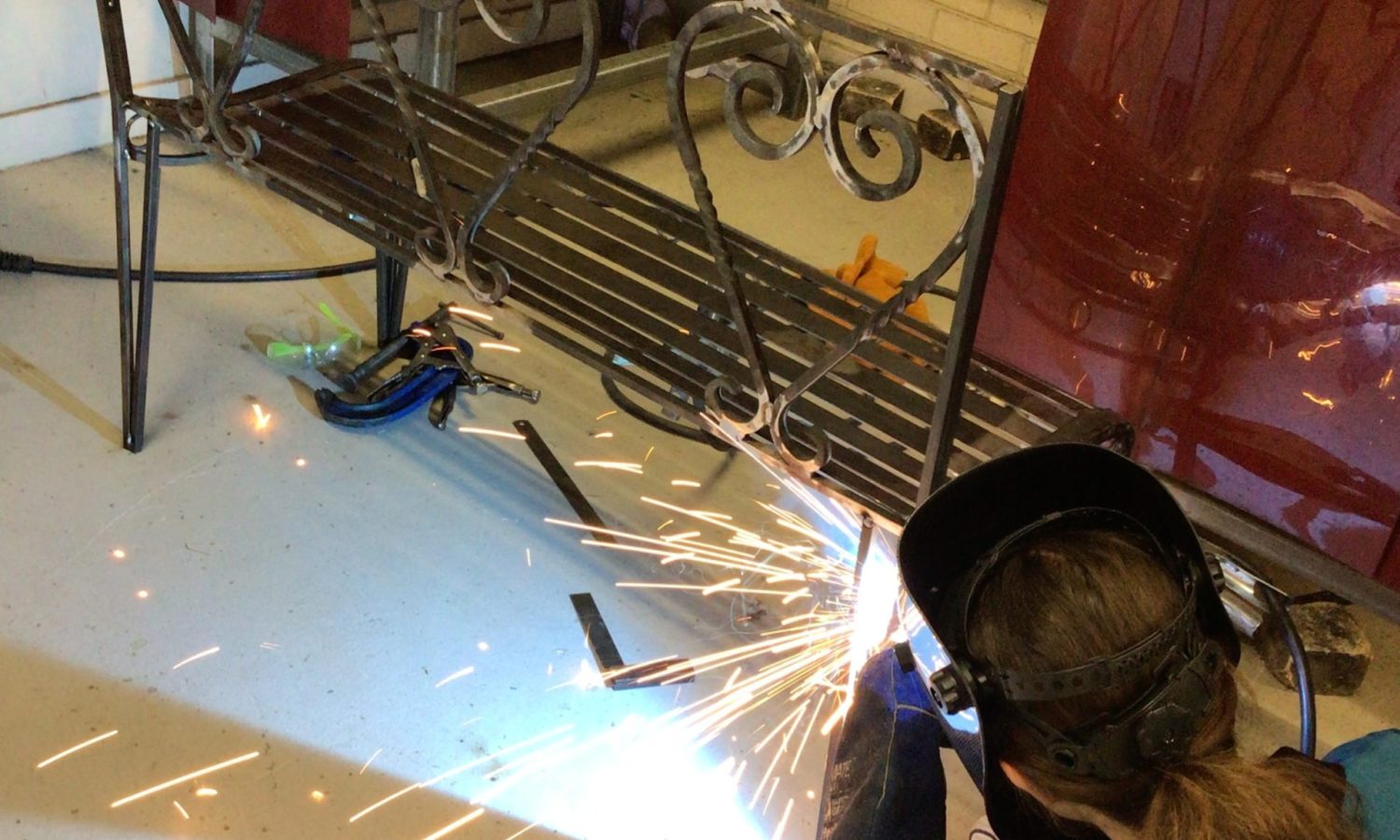
The Technologies Learning Area at Byford Secondary College offers study in the contexts of Design (Technical Graphics), Digital Technologies, Food Specialisations, Food and Fibre, Materials Specialisations and Engineering Principals & Systems. Students entering year 7 and 8 have the opportunity to experience all Technologies contexts through a rotating two-year cycle with students taking classes in Digital Technology, Food and Fibre, Metal Technology and Wood Technology.
Year 9 and 10 allows students the opportunity to begin subject specialisation in Technologies with a focus on both semester and year-long courses depending on what students select as a preference (all courses are subject to minimum numbers prior to running). Depending on resources and demand of classes the college offers courses such as:
For more information head to the School Curriculum Standard Authority’s website See here.
In Senior School students have the opportunity to select from a range of areas in either a General Pathway or an ATAR Pathway. Depending on resources and demand for classes the college offers courses in the following areas:
The Applied Information Technology General course provides students with the knowledge and skills to use
a range of computer hardware and software to create, manipulate and communicate information in an effective, responsible and informed manner. Students develop an understanding of computer systems; the management of data; and the use a variety of software applications to investigate, design, construct and evaluate digital products and digital solutions. The course offers pathways to further studies and a range of technology-based careers and a set of skills that equip students for the 21st century and give them an appreciation of the impact of information technology on society.
The Children, Family and the Community General course focuses on factors that influence human development and the wellbeing of individuals, families and communities. Students explore the health of individuals and communities and the protective and preventative strategies that impact on growth and development. They engage in shared research, examine goal setting, self-management, decision making, communication and cooperation skills when creating products, services or systems that will assist individuals, families and communities to achieve their needs and wants. Contemporary Australian issues or trends relating to families and communities at the state and national level are examined in practical ways.
In the Design General course students develop skills and processes for current and future industry and employment markets. Students are equipped with the knowledge and skills to understand design principles and processes, analyse problems and devise innovative strategies through projects. The Design General course also emphasises the scope of design in trade based industries allowing students to maximise vocational pathways. Students learn computer aided design (CAD), technical graphics drawing techniques and a variety of other design skills to prepare them for employment.
The Food Science and Technology General course provides opportunities for students to explore and develop food-related interests and skills. Food impacts on every aspect of daily life and is essential for maintaining overall health and wellbeing. Students organise, implement and manage production processes in a range of food environments and understand systems that regulate food availability, safety and quality. Knowledge of the sensory, physical, chemical and functional properties of food is applied in practical situations. Students investigate the food supply chain and value-adding techniques applied to food to meet consumer and producer requirements. Principles of dietary planning, adapting recipes, and processing techniques, are considered for specific nutritional needs of demographic groups. Occupational safety and health requirements, safe food handling practices, and a variety of processing techniques, are implemented to produce safe, quality food products. This course may enhance employability and career opportunities in areas that include nutrition, health, food and beverage manufacturing, food processing, community services, hospitality and retail.
The Materials Design and Technology General course is a practical course. Students can choose to work with metal or wood, with the design and manufacture of products as the major focus. Students have the opportunity to develop and practise skills that contribute to creating a physical product, while acquiring an appreciation of the application of a design process, and an understanding of the need for materials sustainability. Students will learn and practise manufacturing processes and technologies, including principles of design, planning and management.
Over two years’ students will have the opportunity to complete units of competency in order to gain an understanding of the skills and knowledge in a range of business areas to complete the ICT20120 Certificate II in Applied Digital Technologies. This pathways qualification provides the foundation skills and knowledge to use basic applied digital technologies in varied contexts. The qualification is designed for those developing the necessary digital and technology skills in preparation for work. These individuals carry out a range of basic procedural and operational tasks that require digital and technology skills. They perform a range of mainly routine tasks using limited practical skills and knowledge in a defined context. The qualification is suitable for someone generally performing under direct supervision.
Students interested in pursuing a career working with children or community support agencies can achieve CHC22015 Certificate II in Community Services (Childcare). This qualification will be delivered over two years and may be used as a pathway for workforce entry as community services workers who provide a first point of contact and assist individuals in meeting their immediate needs. At this level, work takes place under direct, regular supervision within clearly defined guidelines. Students will be involved in a range of activities in both the classroom and a Childcare workplace setting developing the skills and knowledge required to provide an emergency first aid response in an education and care setting, ensure the health and safety of children, promote and provide healthy food and drinks, communicate with children, organize and complete daily work activities in a child care setting. Students developing the skills and knowledge required to provide an emergency first aid response in an education and care setting, ensure the health and safety of children, promote and provide healthy food and drinks, communicate with children, organise and complete daily work activities in a child care setting. Students enrolled in this course will also develop the skills to effectively use digital technology for routine workplace tasks, use strategies to respond to routine workplace problems, use routine strategies for work-related learning, interact effectively with others at work and participate effectively in the work environment.
The SIT20316 Certificate II Hospitality qualification will provide you with an entry level skills and knowledge to work in the hospitality industry. This qualification will be delivered over two years and reflects the role of individuals who have a defined range of hospitality operational skills and basic industry knowledge. They are involved in mainly routine and repetitive tasks and work under direct supervision. This qualification provides a pathway to work in various hospitality settings, such as restaurants, hotels, motels, catering operations, clubs, pubs, cafes, and coffee shops. Students will learn a broad range of skills to help you decide which area of hospitality you wish to follow, for example, prepare and present sandwiches, prepare and service non-alcoholic beverages, use hospitality skills effectively, prepare and service espresso coffee, work effectively with others and interact with customers. This qualification provides an introduction to the hospitality industry, its culture, occupations, job roles and workplace expectations. Student will be expected to perform to industry standards across a range of activities in both the classroom and a workplace setting.
For more information head to the School Curriculum Standard Authority’s website See here.